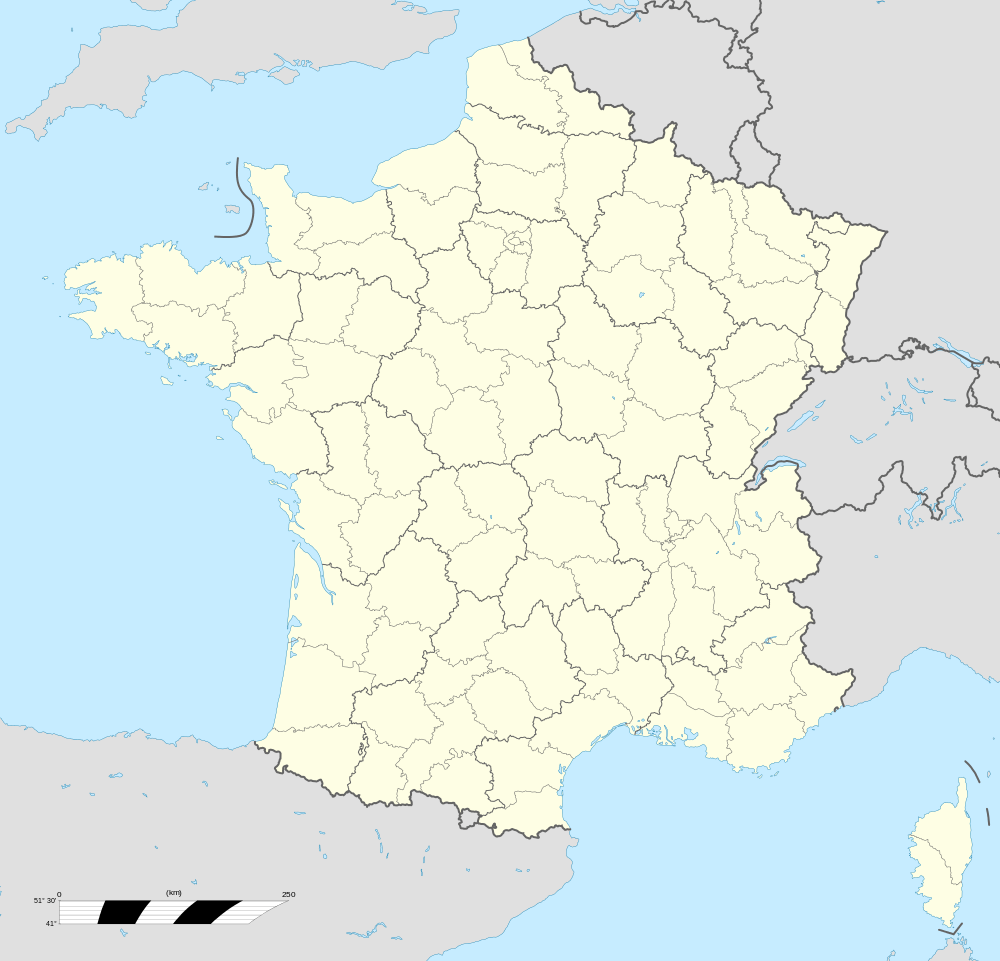Poligny, Jura
| Poligny | ||
|---|---|---|
|
| ||
| ||
 Poligny | ||
|
Location within Franche-Comté region  Poligny | ||
| Coordinates: 46°50′12″N 5°42′31″E / 46.8367°N 5.7086°ECoordinates: 46°50′12″N 5°42′31″E / 46.8367°N 5.7086°E | ||
| Country | France | |
| Region | Franche-Comté | |
| Department | Jura | |
| Arrondissement | Lons-le-Saunier | |
| Canton | Poligny | |
| Government | ||
| • Mayor (2014–2020) | Dominique Bonnet | |
| Area1 | 50.22 km2 (19.39 sq mi) | |
| Population (1999)2 | 4,511 | |
| • Density | 90/km2 (230/sq mi) | |
| INSEE/Postal code | 39434 / 39800 | |
| Elevation | 252–626 m (827–2,054 ft) | |
|
1 French Land Register data, which excludes lakes, ponds, glaciers > 1 km² (0.386 sq mi or 247 acres) and river estuaries. 2 Population without double counting: residents of multiple communes (e.g., students and military personnel) only counted once. | ||
Poligny is a commune in the Jura department in Franche-Comté in eastern France.
The town stands on the edge of the "Premier Plateau" of the Jura region, with limestone cliffs rising to its east and south, and a steephead valley leading to the village of Vaux-sur-Poligny to the east. On the cliffs to the east is a notable cave, known as "Le Trou de la Lune" (the Moonhole); on the cliffs to the south is a large cross, the "Croix du Dan". A network of hiking trails surrounds the town and provide routes to both these viewpoints, and the GR 59 long distance footpath runs through the town.
First Empire general Jean-Pierre Travot was born in Poligny; a statue in his honour stands in the principal square of the town, the Place des Déportés, and a road is named after him.
Poligny is served by the railway line from Besançon to Lons-le-Saunier.
Demographics
At the census of 1999, the population was 4511. The estimate for 2004 was 4,377.
Gallery
-
_Church.jpg)
Collégiale St.Hippolyte
-

Tower of Paravis
-

Tower of the "Sergenterie"
-
.svg.png)
-

-
_Trou_de_la_Lune.jpg)
Le Moon hole
-
La "Roche Percée"
See also
References
| Wikimedia Commons has media related to Poligny (Jura). |





